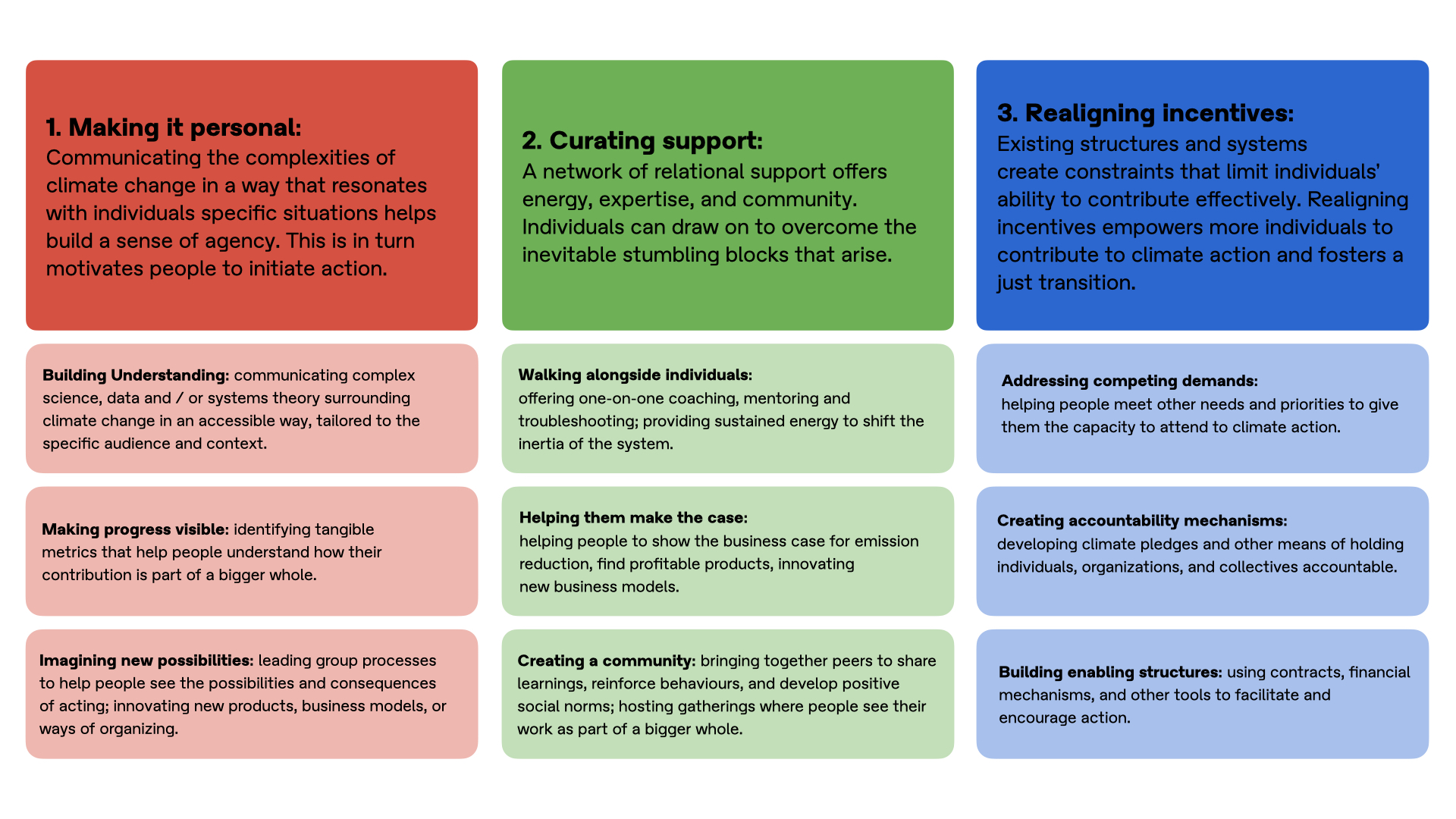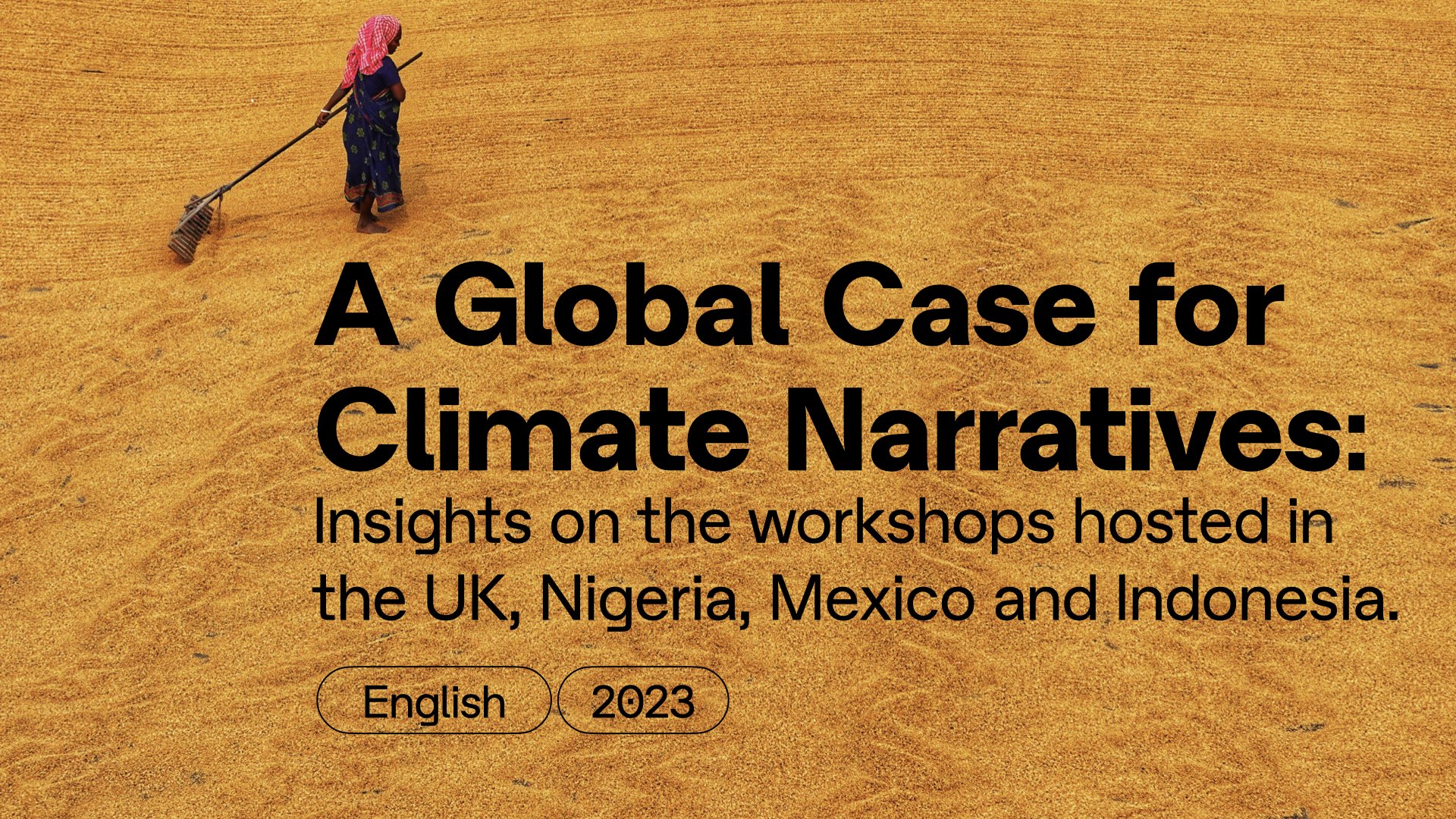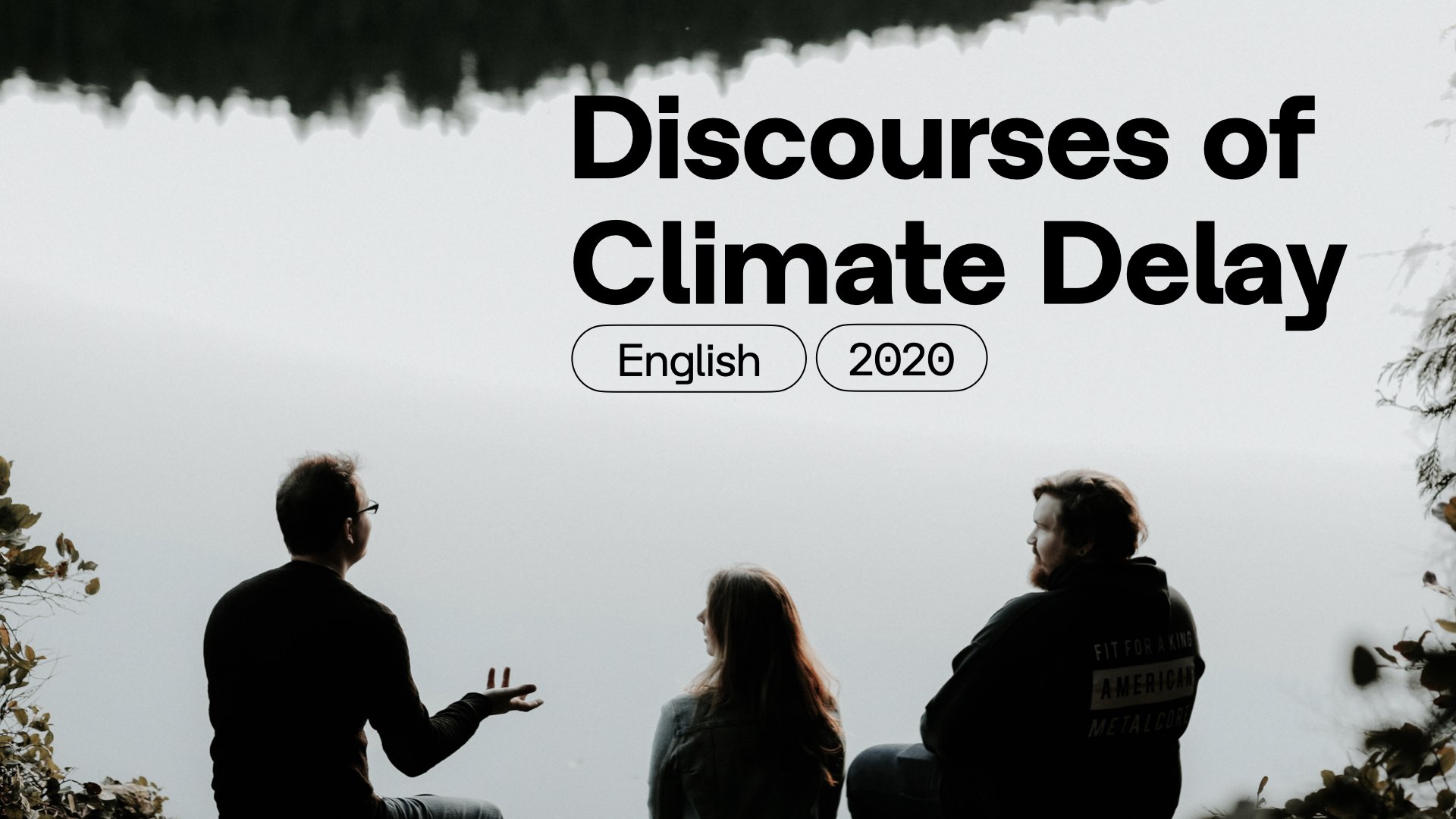We invite you to uncover the interconnected patterns emerging across the field and exploring the latest conversations with Ashoka Planet & Climate Fellows.
TURNING CONCERN INTO CLIMATE ACTION
As the impacts of climate change play out, global concern levels are increasing, yet individuals feel a lack of agency. Dominant narratives around climate change often perpetuate the idea that one's own actions are too small to make an impact. How can we harness this existing concern and channel it toward action?
By bringing together changemakers from multiple fields, we’re hoping to foster new narratives of climate agency in four key locations. Starting with discovery workshops in Indonesia, Nigeria, Mexico and the UK, we’ve uncovered insights about how to design and prototype projects that enable system shifts as well as communications campaigns that move people from concern to action.
TALKING ABOUT CLIMATE CHANGE
In today’s world, most people are aware of climate change. However, the way we talk about this issue and the stories we tell ourselves differ greatly from person to person. If someone is optimistic about the future, they might be called naïve. If they foresee a negative future, they might be told their view is too catastrophic.
Various archetypes of climate discourse are explored in this article. In order to mobilize communities and create large-scale impact, we need to think about which types of discourses we are using and how effective they are in changing people’s mentalities about climate change.
EVERYONE, EVERYWHERE, ALL AT ONCE.
The Challenge: empowering individuals to influence systems
The causes of the climate emergency are fundamentally intertwined with social, political, and economic systems, meaning radical transformation is needed. Doing so requires systemic change, driven from multiple angles simultaneously. And to change everything, we need everyone.
While much has been written about what need to happen, existing work tends to focus on the role of business, philanthropy, government, and cross-sector partnerships between them. Yet systems are changed not through these sectors alone. They are changed by the hands of millions of individuals working within and outside of these organizations. It’s time to move beyond the false dichotomy of individual versus systemic change, and to adopt approaches that treat individuals as contributors to, and influencers of, systems.
But doing so won’t be easy. Even when people want to take action on the climate crisis, they face multiple barriers, and the status quo has powerful inertia: the complexity of climate change can be daunting, people
often don’t know how to have a meaningful impact, and the consequences of inaction can trigger despair. We need people to recognise their ability to take action and see how their contribution can influence systemic change.
Three strategies for unleashing Climate Changemakers:

CLIMATE NARRATIVES OF POSSIBILITY
How do we leverage the power of media to unleash massive environmental agency? Why is media failing to tell the climate story we need to hear? How must it be told in order to activate people as change agents in the face of our biggest global challenge? How can media inform the way decisions affecting the planet are being taken?
If we are to achieve a world where everyone is a changemaker, we must tell everyone that it’s possible, that it has value and that it will make a difference. News, movies, television, social media... all have played, and can keep playing, a crucial role in this societal shift.
A powerful conversation at the #ChangemakerSummit between: Solitaire Townsend, Founder of Futerra; Luis Alberto Camargo, Founder of OpEPA Colombia and Ashoka Fellow; Ella Saltmarshe, Founder of The Long Time Project.

